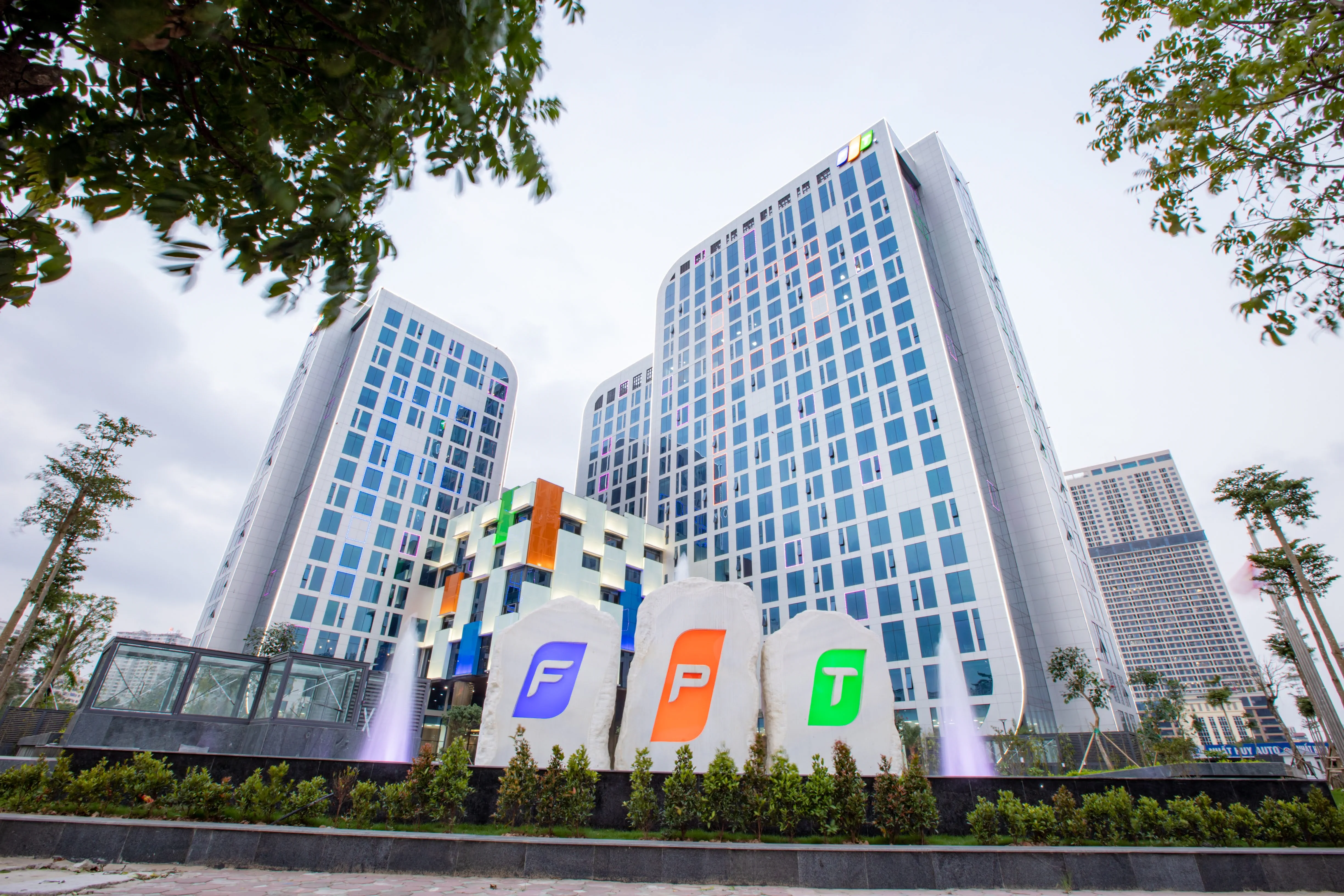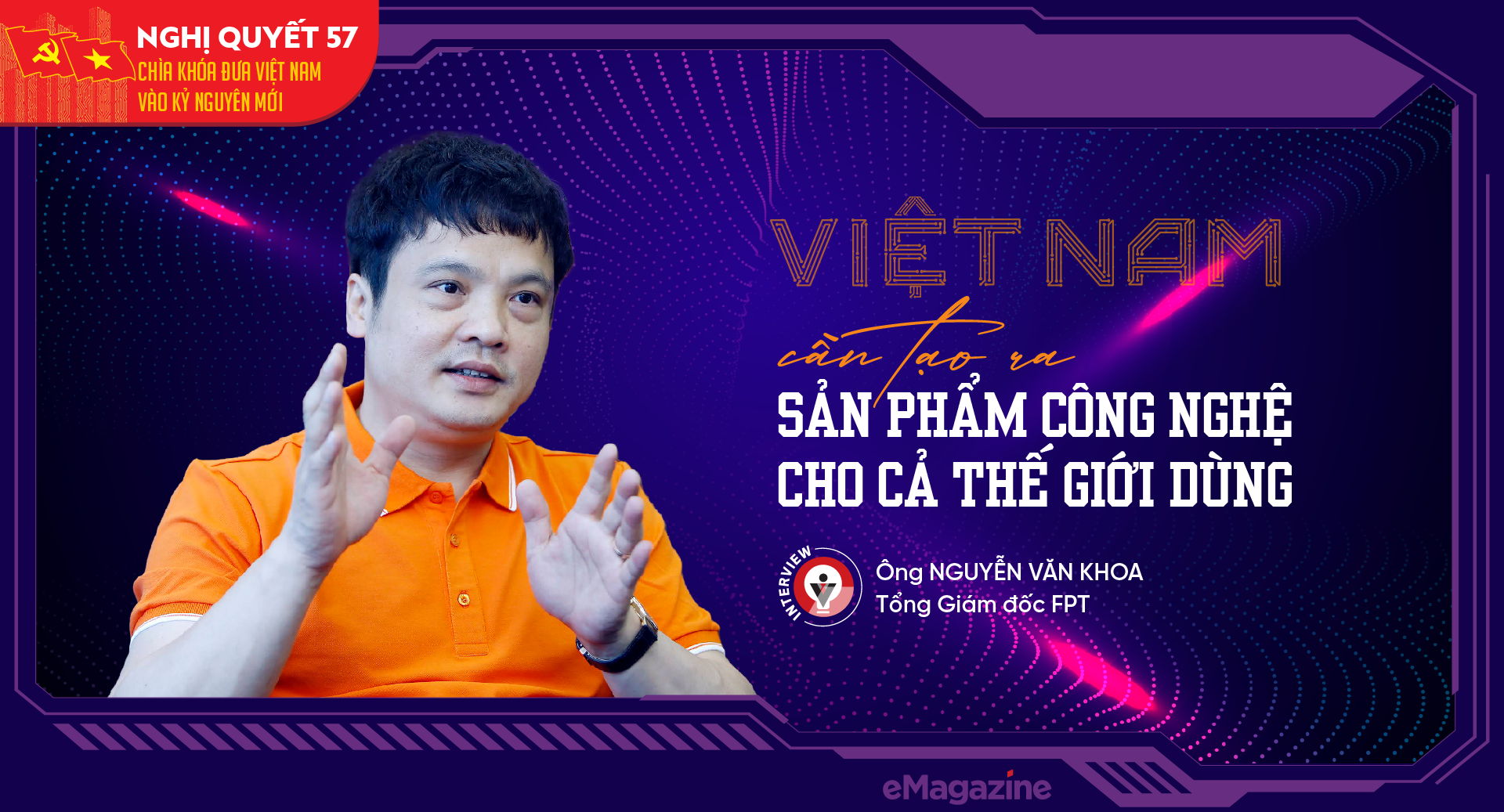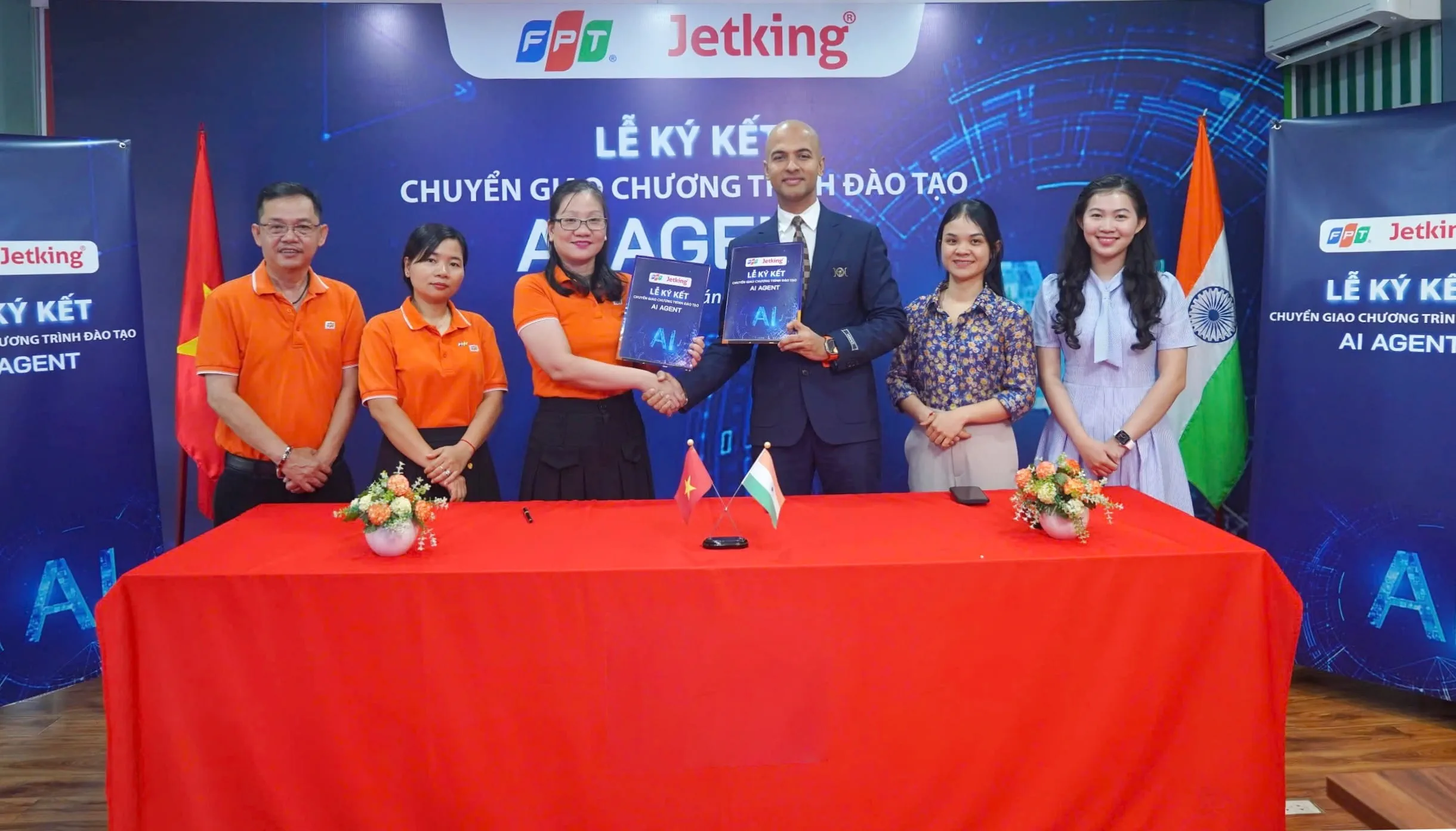FPT Chairman Truong Gia Binh: “AI is the 10X leap — an opportunity for Vietnam to rise alongside the world”
•
15/09/2025
On September 15, 2025, in Hanoi, the Ho Chi Minh National Academy of Politics, in collaboration with the Ministry of Public Security, the Ministry of National Defense, the Central Theoretical Council, and the Ministry of Science and Technology, organized the national scientific conference titled “The Unlimited Power and Unpredictable Challenges of Artificial Intelligence (AI) – Impacts and Policy Responses.”
The conference gathered nearly 400 delegates, including leaders of the Party and the State, scientists, technology experts, research institutes, and pioneering corporations and enterprises in science, technology, and innovation. It was co-chaired by Comrade Nguyen Xuan Thang, Politburo Member, Director of the Ho Chi Minh National Academy of Politics, Chairman of the Central Theoretical Council; General Luong Tam Quang, Politburo Member, Minister of Public Security; Senior Lieutenant General Le Huy Vinh, Member of the Party Central Committee, Deputy Minister of National Defense; and Comrade Nguyen Manh Hung, Member of the Party Central Committee, Minister of Science and Technology.
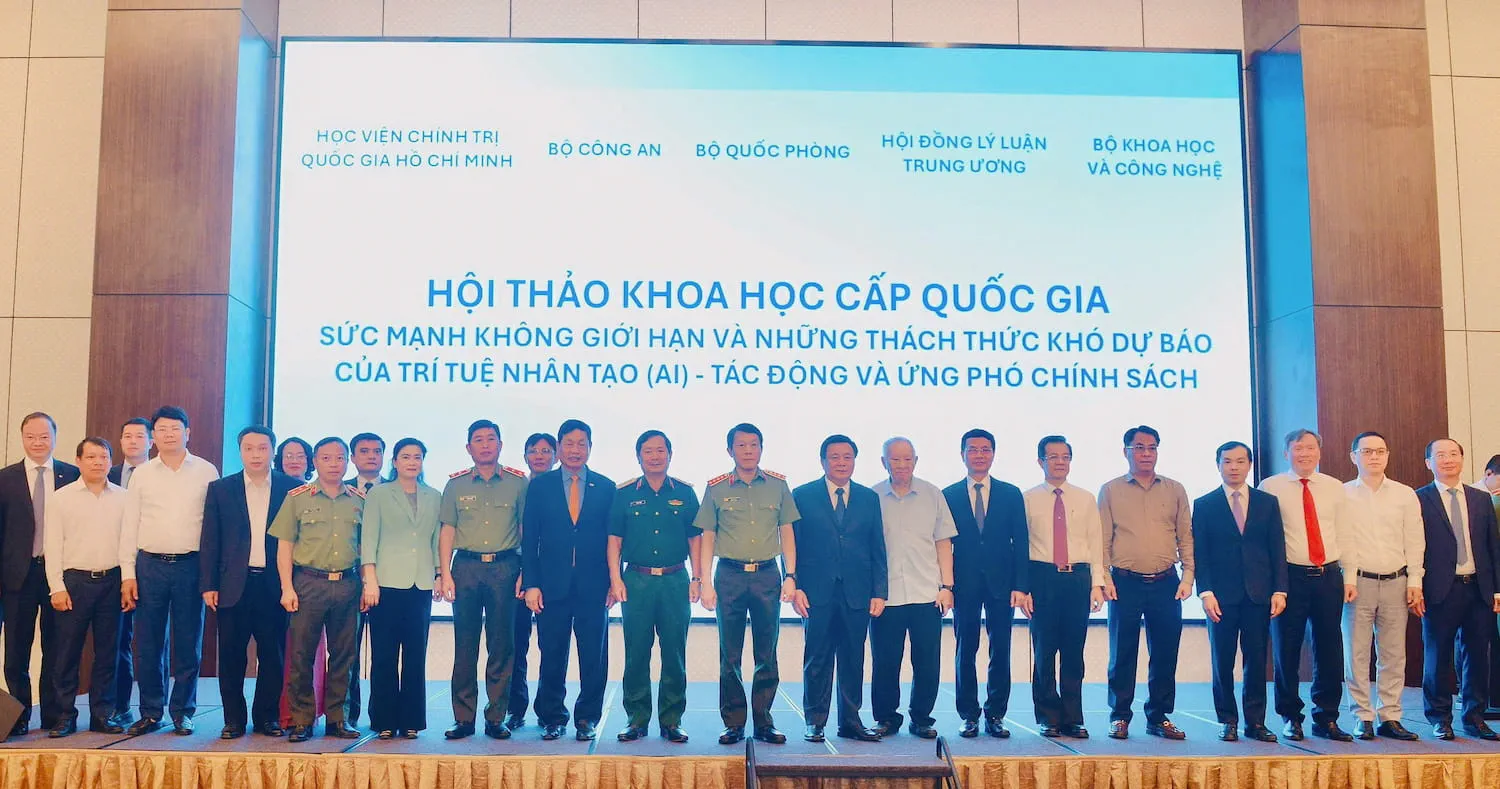
Delegates take a group photo at the conference.
The conference served as a forum for scientists, experts, and government leaders to analyze the profound impacts, unprecedented opportunities, and potential risks of AI; while also proposing timely policy responses to help Vietnam master technology, develop Vietnamese-language AI models, and build a sustainable AI environment that serves the interests of the nation, community, and society.
In his opening remarks, General Luong Tam Quang, Politburo Member and Minister of Public Security, affirmed that AI is a key technology of the Fourth Industrial Revolution, capable of reshaping the global order and therefore of utmost importance to all nations, especially major powers. With strategic foresight, the Party has issued Resolution No. 57-NQ/TW, identifying science and technology, innovation, and national digital transformation—including AI—as the “golden keys” for Vietnam to escape the middle-income trap, avoid economic backwardness, and achieve the strategic goal of becoming a high-income developed nation by 2045. The Resolution designates the development of strategic technologies, including AI, as a top breakthrough and a driving force for modernizing production, innovating national governance, and advancing socio-economic development.
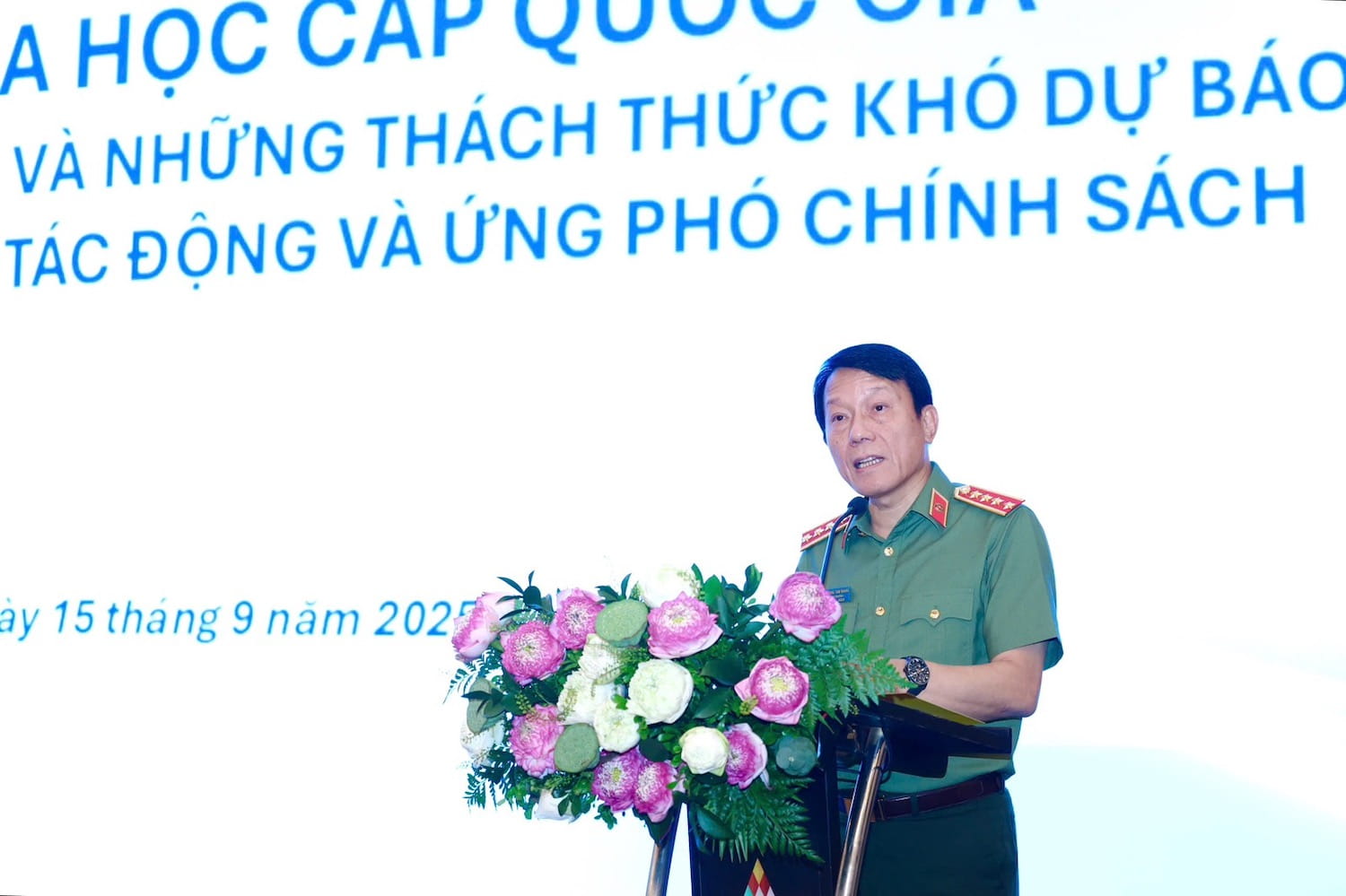
General Luong Tam Quang, Politburo Member and Minister of Public Security, delivering the opening speech.
In his keynote address, Professor Dr. Nguyen Xuan Thang, Politburo Member, Director of the Ho Chi Minh National Academy of Politics, and Chairman of the Central Theoretical Council, emphasized that the conference provided an opportunity for leaders, scientists, experts, and businesses to analyze AI’s impacts, opportunities, and unpredictable risks, thereby formulating policy recommendations that would enable Vietnam to master technology, develop Vietnamese-language AI models, and build a humane, safe, and effective AI ecosystem. He stressed that in a world witnessing both intense competition and close cooperation in AI development and application, defining Vietnam’s position in AI—and in building a humane, safe, and effective AI ecosystem—is an urgent task to ensure the country does not lag behind in global digital integration. He also noted that “technology is only a tool—humans are the ultimate goal and the decisive factor.”
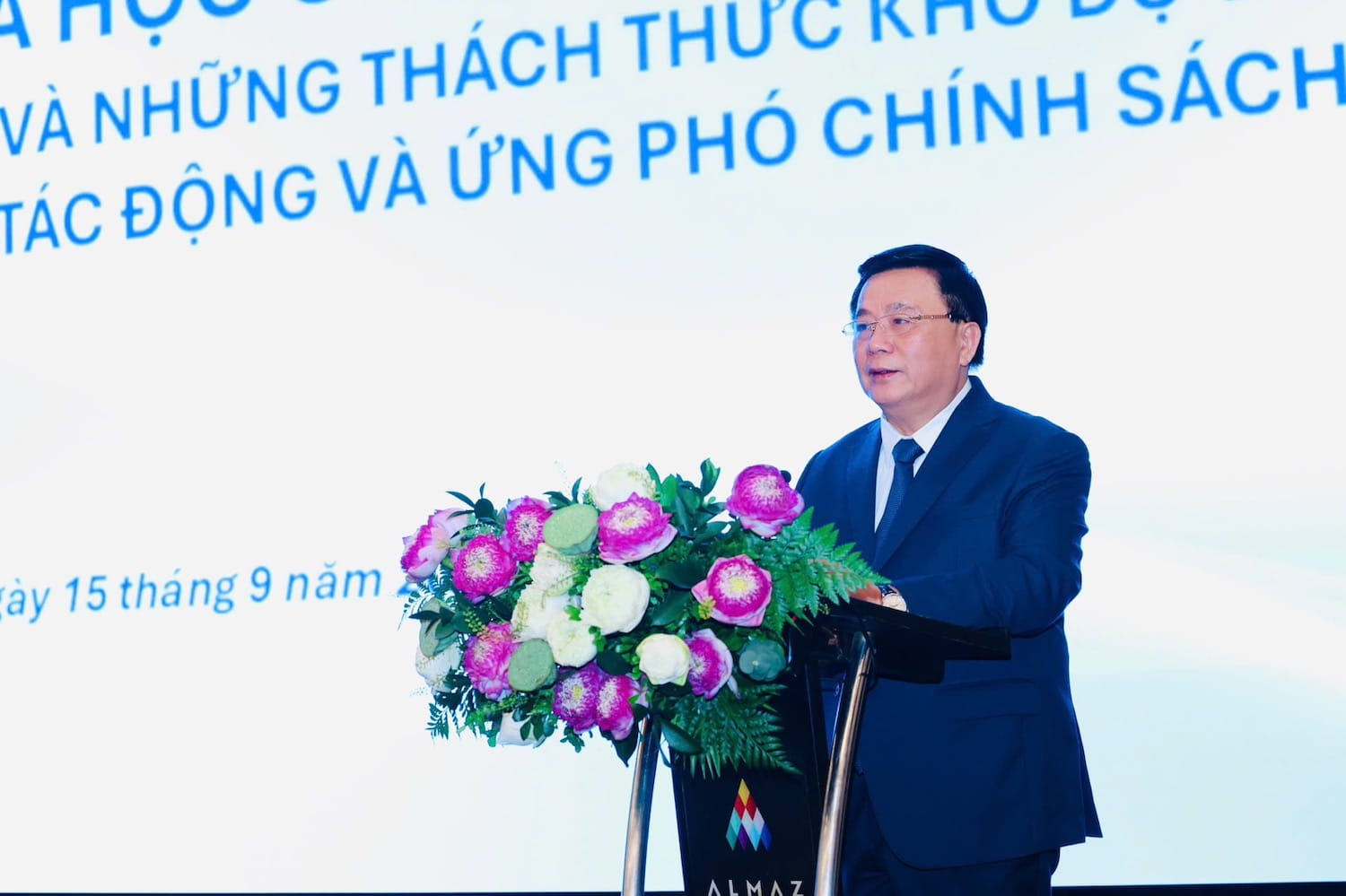
Professor Dr. Nguyen Xuan Thang, Politburo Member, Director of the Ho Chi Minh National Academy of Politics, and Chairman of the Central Theoretical Council, delivering the keynote address.
Speaking at the conference, Minister of Science and Technology Nguyen Manh Hung highlighted that AI represents a historic opportunity for Vietnam to become a developed, high-income country. “We must seize this opportunity, concentrate all resources to ‘AI-ize’ Vietnam, to double the intelligence of the Vietnamese people, increase labor productivity, achieve double-digit economic growth, strengthen national competitiveness, improve governance capacity, and protect the nation more effectively,” he said. According to the Minister, the declaration of Vietnamese AI should be: Humanistic – Safe – Autonomous – Cooperative – Inclusive – and Sustainable.
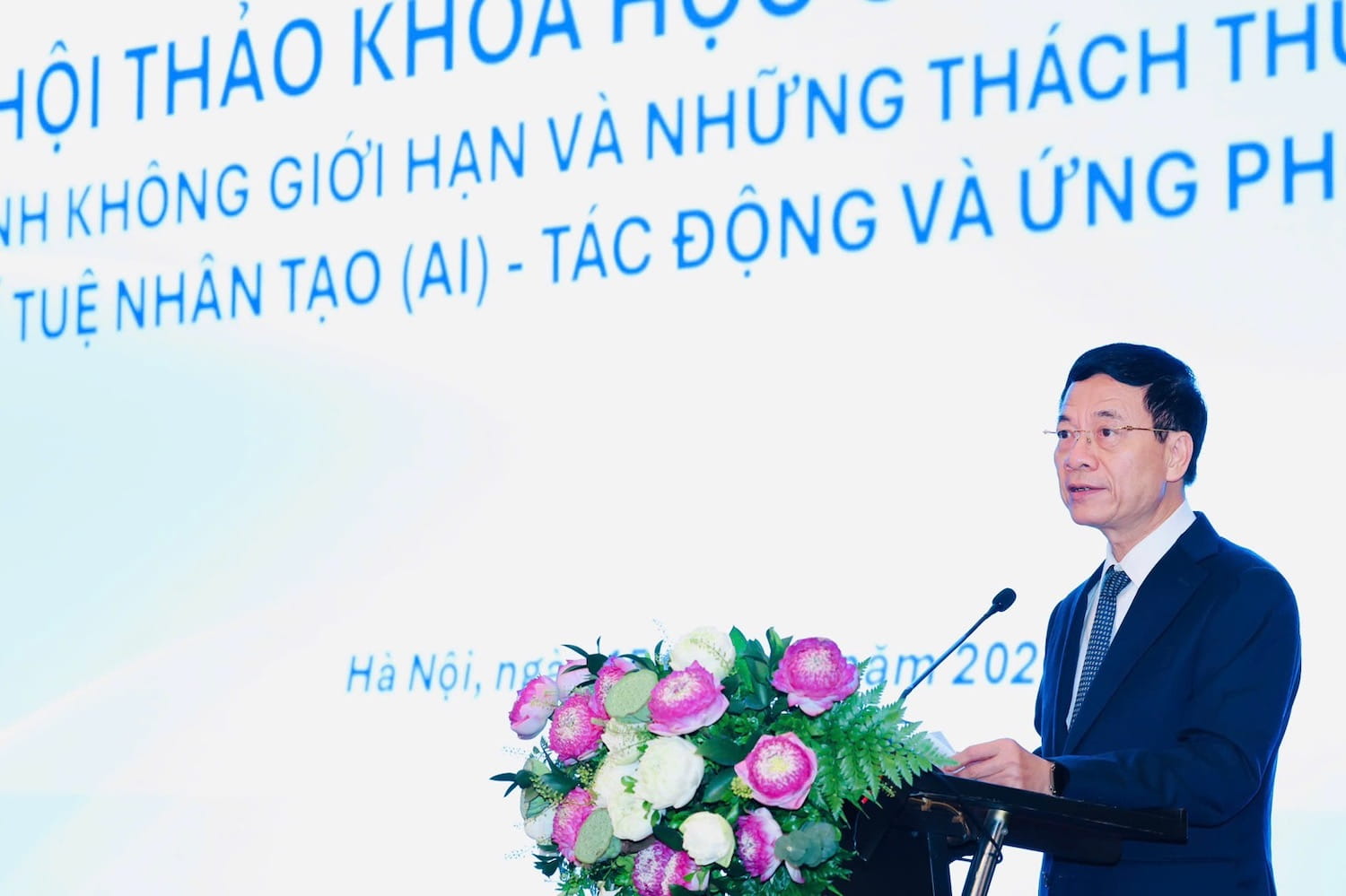
Minister of Science and Technology Nguyen Manh Hung speaking at the event.
The conference featured two in-depth panel discussions on artificial intelligence, with lively and insightful contributions from experts, policymakers, and business leaders.
The first session, themed “AI: Power, Risks, and Control,” analyzed both the positive and negative aspects of AI, emphasizing that harnessing its power must go hand in hand with managing ethical, safety, security, and social risks. The second session, titled “National AI Development Strategy: From Vision to Action,” discussed implementation roadmaps for strategies and policies to make AI a key pillar of Vietnam’s socio-economic development.
During the first panel discussion, Associate Professor Dr. Truong Gia Binh, Chairman of FPT Corporation, shared: “Minister Nguyen Manh Hung often reminds us that our thinking must be 10X—it must involve breakthroughs. And AI itself is the 10X breakthrough. AI enables a tenfold increase in labor productivity. In the past, our gap with advanced nations was vast because of technological revolutions—but none of those revolutions ever created such an exponential leap in productivity. Therefore, this revolution poses tremendous challenges—but equally, immense opportunities.”
.jpg)
Associate Professor Dr. Truong Gia Binh, Chairman of FPT Corporation, speaking at the panel “AI: Power, Risks, and Control.”
Mr. Truong Gia Binh also emphasized that education reform is the most crucial solution. He explained: “The real challenge is that by the time a child who enters Grade 1 today finishes school and joins the workforce, their job will be completely different. None of us can predict what future work will look like or how to prepare for it. That’s why I’ve proposed a fundamental shift in how we teach, learn, and assess. If Vietnamese children learn with AI, work with AI, and grow up with AI from the very first grade, they will be able to adapt to any future shaped by AI. The most important thing is to teach, learn, and assess through AI—and we must do it as quickly as possible.”
During the discussions, experts analyzed the evolving context affecting AI development and proposed policy directions, governance mechanisms, and strategic orientations for Vietnam to develop AI autonomously, foster innovation, enhance global competitiveness, and build a humane, safe, and sustainable AI ecosystem that serves humanity.
In his closing remarks, Senior Lieutenant General Le Huy Vinh, Member of the Party Central Committee and Deputy Minister of National Defense, acknowledged and highly appreciated the valuable contributions presented at the conference. He affirmed that the organizing committee would synthesize and refine the insights to serve the preparation of key documents for the upcoming 14th National Congress of the Communist Party of Vietnam.
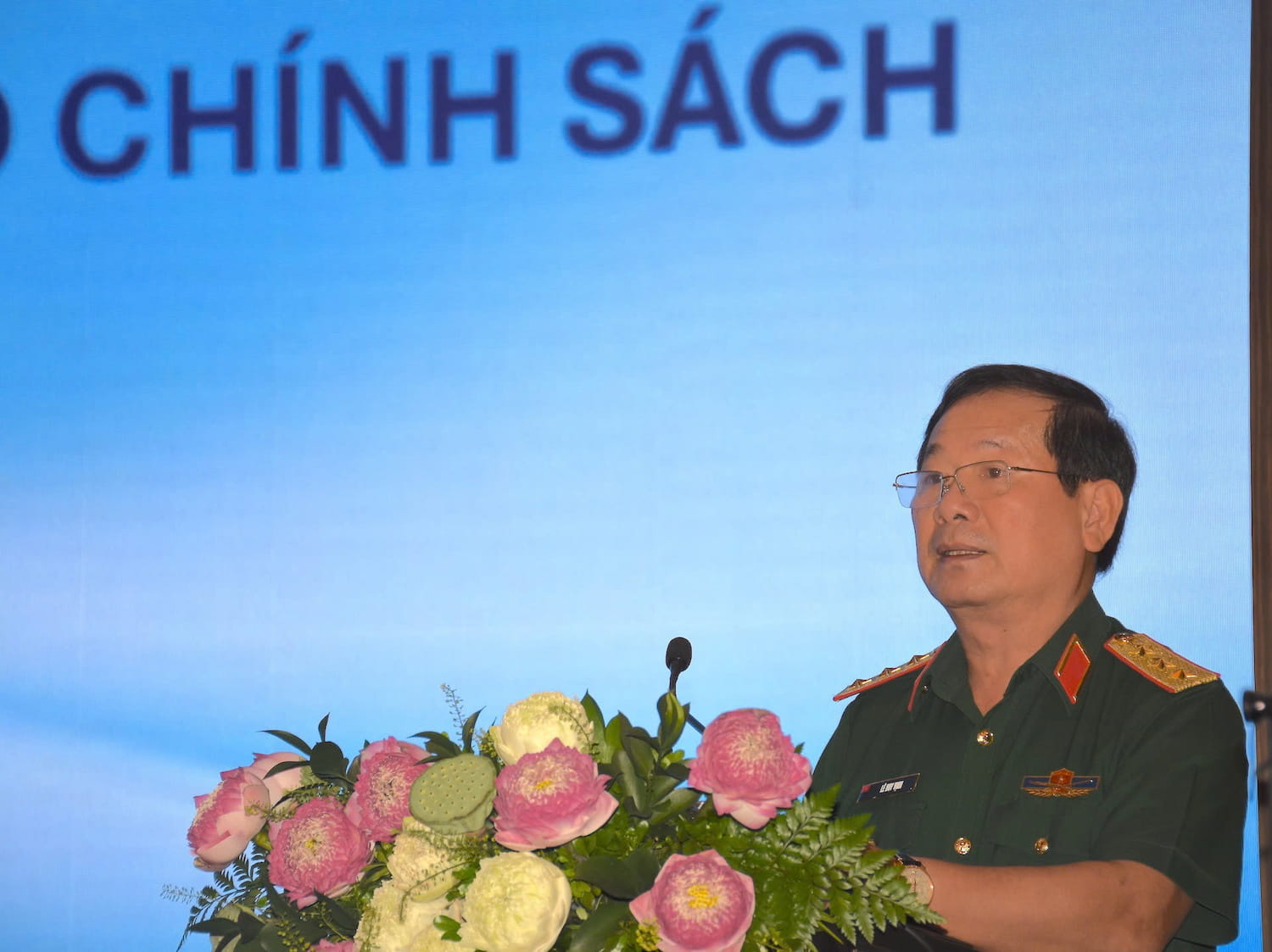
Senior Lieutenant General Le Huy Vinh, Member of the Party Central Committee and Deputy Minister of National Defense, delivering the closing remarks. (Photo: Hoang Chung)
According to assessments, Vietnam’s AI sector holds tremendous potential—projected to contribute up to 80 billion USD, equivalent to 12% of Vietnam’s GDP by 2030, if widely adopted. Around 75% of Vietnamese enterprises are already applying AI in sales operations, and many leading corporations have invested heavily in AI, viewing it as a key technology to accelerate growth and strengthen long-term competitiveness.


